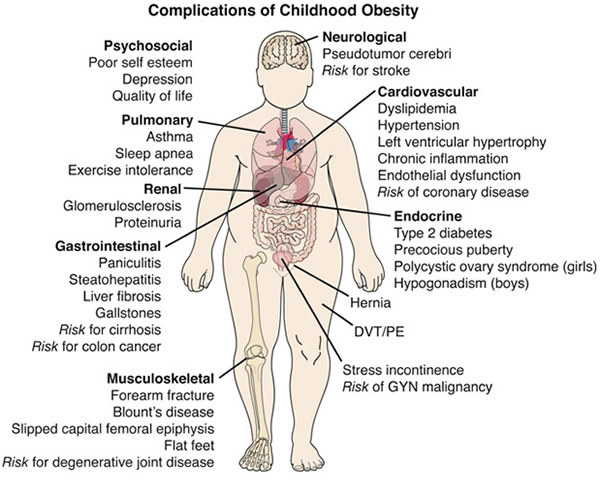Teen and Childhood Obesity
|
Americans are increasingly becoming worried about weight and weight related health problems in of our kids, teenagers, and adults alike. Obesity is becoming more and more common and seems to be spreading much like an epidemic, with more children becoming extremely morbidly obese than ever before. While dietary and behavioral approaches represent the first line of treatment for childhood obesity, bariatric or weight loss surgery is increasingly being considered as an appropriate option for the treatment of teens and even a few children in pre-teen years when they have obesity-related health and quality of life problems. This trend is largely due to the better understanding that we have about surgery. Also, doctors and patients realize lifestyle changes and dieting are fairly ineffective for those with extreme obesity. Furthermore, weight loss surgery is being seen by parents, pediatricians, and even government officials as a beneficial and generally safe way to help younger patients with severe obesity. In the Childhood and Teen Obesity Forum, we would like to provide information for those parents, children and teens who are concerned about extreme childhood obesity and the health problems they may be facing. The weight loss surgery field is ever changing, and improving in safety and effectiveness. In some cases it is entirely appropriate today to consider invasive treatments for pediatric obesity which would not have been proposed in years gone by. What is morbid or extreme pediatric obesity? How did this happen? Is obesity really a major problem for children? Obstructive sleep apnea syndrome occurs more frequently in obese children and has serious adverse effects on daytime learning and quality of life. More than 50% of all teens seeking bariatric surgery have this condition. Obese children also are at increased risk of pseudotumor cerebri, skeletal complications, and polycystic ovary syndrome. Risk of gynecologic and gastrointestinal malignancies also has been closely linked to obesity, specifically to BMI during the teen years. Non-alcoholic steatohepatitis also occurs in obese youth and may eventually prove to be an important cause of end-stage liver disease for young adults who were obese children. Obese adolescents are more stigmatized by peers and cite fewer friendships when compared to adolescents without a weight problem. Obesity young adults is associated with higher high school dropout rates, lower rates of satisfaction with life, and lower rates of marriage and later family income. Obesity confers at least a 2-fold elevation in mortality risk during a 30-year period of follow-up. Racial differences in the risk of premature mortality also has been identified, with black men and women losing over 20 years and 5 years respectively, and white men and women losing 13 years and 8 years respectively as a result of extreme obesity in young adult years.
Next >> Is Weight Loss Surgery the Right Choice for Teens? This information has been provided by Dr. Thomas Inge, Surgical Director of the Surgical Weight Loss Program for Teens at Cincinnati Children?s Hospital Medical Center, a national leader in the pediatric weight loss surgery field. Dr. Inge also serves as the chairman of Teen-LABS, the largest scientific study to date designed to learn more about the risks and benefits of surgery for teenage obesity. Click here to learn more about this study. |

 email to a friend
email to a friend printer-friendly version
printer-friendly version
